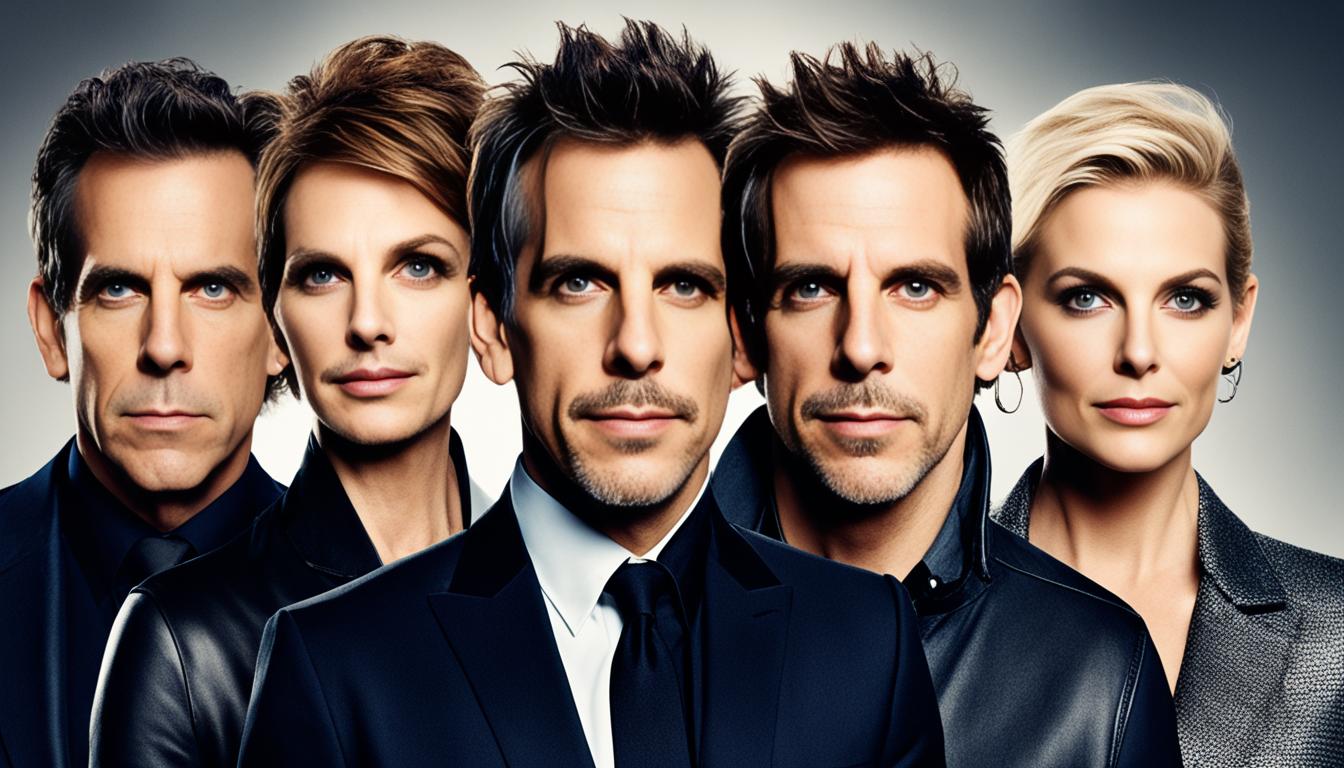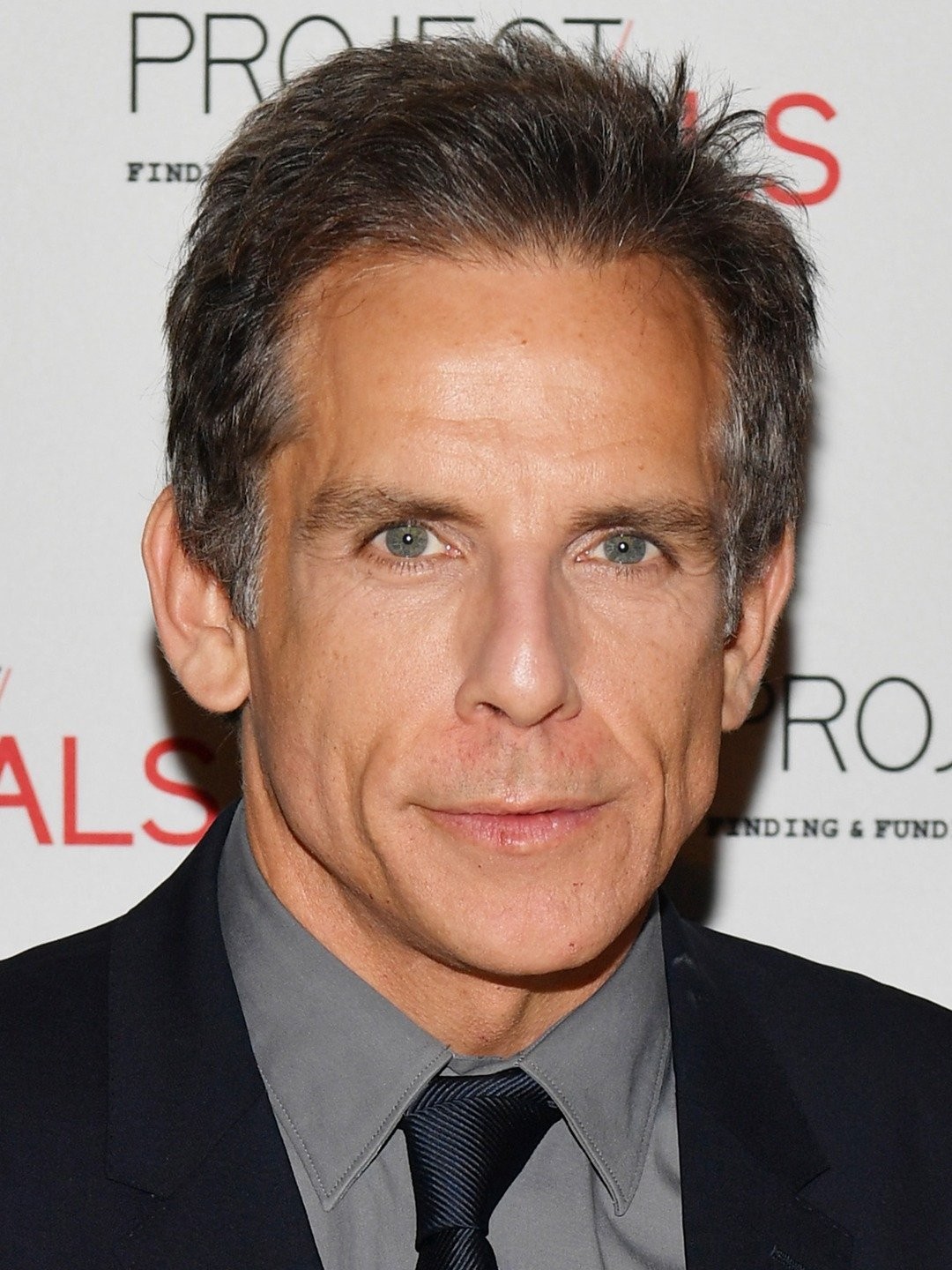Ben Stiller is a name that resonates with comedy, charisma, and charm. But beyond his iconic roles in Hollywood, there's a lesser-known aspect of his life that has intrigued fans and researchers alike: his connection to Noonan Syndrome. If you're here, chances are you're curious about this rare genetic condition and how it ties into the life of one of Hollywood's most beloved actors. So, buckle up, because we're about to uncover the facts, myths, and everything in between.
When it comes to understanding rare medical conditions, it's easy to get lost in a sea of misinformation. That's why we're here—to break it down in a way that's easy to digest, informative, and, most importantly, accurate. Ben Stiller's openness about his health journey has shed light on Noonan Syndrome, making it a topic worth exploring.
In this article, we'll dive deep into what Noonan Syndrome is, how it affects those who have it, and its connection to Ben Stiller. Whether you're a fan, a researcher, or simply curious, this article aims to provide clarity and insight into a condition that affects thousands worldwide. Let's get started!
Read also:Anna Malygon Leaked The Truth Behind The Viral Story And Its Impact
Table of Contents
- Biography of Ben Stiller
- What is Noonan Syndrome?
- The Connection Between Ben Stiller and Noonan Syndrome
- Symptoms of Noonan Syndrome
- Diagnosing Noonan Syndrome
- Treatment Options
- Genetic Factors and Inheritance
- Support and Resources
- Raising Awareness
- Conclusion
Biography of Ben Stiller
Early Life and Career
Before we dive into Noonan Syndrome, let's take a moment to appreciate the man behind the lens and the screen. Ben Stiller was born on November 30, 1965, in New York City. His parents, Jerry Stiller and Anne Meara, were both renowned comedians, giving Ben a front-row seat to the world of humor from a young age. Growing up in a household filled with laughter, it's no surprise that comedy became his passion.
Stiller's career began in the late '80s, with roles in TV shows like "The Ben Stiller Show" and later in films such as "Reality Bites" and "There's Something About Mary." His unique blend of wit and charm made him a household name, but his journey wasn't without its challenges.
Personal Details
Here's a quick glance at Ben Stiller's personal life:
| Full Name | Benjamin Edward Stiller |
|---|---|
| Date of Birth | November 30, 1965 |
| Place of Birth | New York City, USA |
| Parents | Jerry Stiller and Anne Meara |
| Spouse | Christine Taylor (Divorced) |
What is Noonan Syndrome?
Noonan Syndrome is a genetic disorder that affects multiple parts of the body. It's estimated to occur in 1 in 1,000 to 1 in 2,500 people worldwide. The condition can lead to distinctive facial features, short stature, heart defects, and developmental delays. While it's a lifelong condition, many individuals with Noonan Syndrome lead fulfilling lives with proper care and support.
One of the most common misconceptions is that Noonan Syndrome is always inherited. In reality, around 50% of cases occur spontaneously due to genetic mutations. This means that even if neither parent has the condition, their child can still be affected.
The Connection Between Ben Stiller and Noonan Syndrome
Ben Stiller's association with Noonan Syndrome gained attention when he mentioned it in interviews and documentaries. He revealed that he was diagnosed with the condition as a child, which explained some of his physical characteristics and health challenges growing up. While he hasn't let it define his life, Stiller's openness has helped raise awareness about the syndrome.
Read also:The Phenomenon Of Sophie Rains Spiderman Vid A Story That Captures Hearts
It's important to note that not everyone with Noonan Syndrome experiences the same symptoms. The severity can vary widely from person to person, making it a complex condition to diagnose and manage.
Symptoms of Noonan Syndrome
So, what exactly does Noonan Syndrome look like? Here are some common symptoms:
- Distinctive facial features, such as wide-set eyes, a broad or webbed neck, and low-set ears.
- Short stature, often due to growth hormone deficiency.
- Heart defects, such as pulmonary valve stenosis or hypertrophic cardiomyopathy.
- Developmental delays, including speech and motor skill challenges.
- Learning difficulties in some cases.
While these symptoms can be daunting, early intervention and support can make a significant difference in managing the condition.
Diagnosing Noonan Syndrome
Diagnosing Noonan Syndrome typically involves a combination of physical exams, genetic testing, and medical history evaluation. Doctors look for the characteristic facial features and other signs that point to the condition. Genetic testing can confirm the presence of specific mutations associated with Noonan Syndrome.
It's worth noting that diagnosis can sometimes be delayed, especially in milder cases. That's why raising awareness among healthcare professionals and the general public is crucial.
Treatment Options
There's no cure for Noonan Syndrome, but there are treatments available to manage its effects. These may include:
- Growth hormone therapy to address short stature.
- Surgery to correct heart defects.
- Speech and physical therapy to address developmental delays.
- Regular monitoring of heart and growth development.
The key is personalized care tailored to the individual's needs. Collaboration between doctors, therapists, and families is essential for the best outcomes.
Genetic Factors and Inheritance
Noonan Syndrome is primarily caused by mutations in genes such as PTPN11, SOS1, RAF1, and others. These mutations disrupt normal cell growth and development. While about half of the cases are inherited from a parent with the condition, the other half occur spontaneously.
Understanding the genetics behind Noonan Syndrome can help families make informed decisions about family planning and genetic counseling. It's a complex field, but advancements in research are bringing new insights every day.
Support and Resources
Living with Noonan Syndrome can be challenging, but there's a growing community of support available. Organizations like the Noonan Syndrome Foundation and the National Organization for Rare Disorders (NORD) provide resources, advocacy, and connections for individuals and families affected by the condition.
Support groups, both online and in-person, offer a space to share experiences and advice. It's comforting to know you're not alone on this journey.
Raising Awareness
Awareness is the first step toward understanding and acceptance. Celebrities like Ben Stiller play a vital role in bringing attention to rare conditions like Noonan Syndrome. By sharing their stories, they help reduce stigma and encourage others to seek help.
Education and advocacy are essential for improving diagnosis, treatment, and support for those with Noonan Syndrome. Whether through social media campaigns, fundraisers, or community events, every effort counts.
Conclusion
We've taken a deep dive into Ben Stiller's connection to Noonan Syndrome and explored what this condition entails. From its symptoms and diagnosis to treatment options and support networks, there's a lot to unpack. It's clear that while Noonan Syndrome presents challenges, it doesn't have to define someone's life.
As we continue to learn more about genetic conditions like Noonan Syndrome, it's crucial to support research, raise awareness, and foster a community of understanding. So, if you've found this article helpful, don't hesitate to share it with others. Together, we can make a difference!
And hey, if you're a fan of Ben Stiller, take a moment to appreciate not just his talent but also his courage in speaking openly about his health journey. It's a reminder that even the most famous faces have stories worth hearing.


